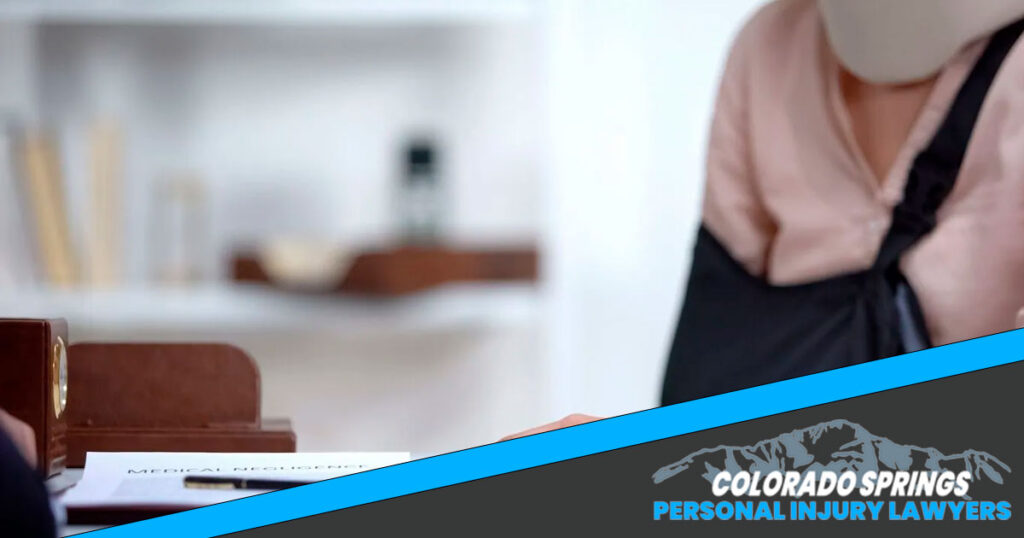After a car accident, you may find yourself just wanting to take time to rest and recuperate. However, time is of the essence when it comes to filing a personal injury claim for damages from your accident. Understanding the limitations and timeframes involved can help injury victims protect their rights and receive the compensation they deserve.
The statute of limitations sets a deadline for individuals to initiate legal action after an accident or injury. Failure to file within this specified timeframe can lead to a complete loss of the right to pursue compensation. In Colorado Springs, the statute of limitations varies depending on the type of accident. While many people think it’s only two years for all personal injury claims. In fact, when it comes to car accidents, it’s three years.
Understanding the Statute of Limitations in Colorado Springs
The statute of limitations refers to a law that sets a time limit within which legal action can be taken on a particular matter. It serves the purpose of promoting certainty and finality in legal proceedings, by ensuring that claims are brought within a reasonable timeframe while evidence and witness recollections are still reasonably available. This protects defendants from facing lawsuits for incidents that happened in the distant past when evidence may have been lost, memories faded, or witnesses inaccessible.
Personal Injury Claims
In the case of auto accidents, the statute of limitations for personal injury claims in Colorado Springs is three years from the date of the injury or accident.
Wrongful Death Claims
When a car accident becomes fatal, there may be a case of wrongful death. This is where an individual dies as a result of another driver’s actions, the statute of limitations in Colorado Springs is usually three years from the date of death.
Are There Exceptions To The Statute Of Limitations In Colorado Springs?
There are some circumstances when the statute of limitations can have a special exception. It is important to consult with a Colorado Springs car accident attorney if an exception is something you think you need. Here are a few examples of what might allow someone to qualify:
Minors
If an injured person is under 18 years old at the time of their injury, Colorado allows tolling of the statute of limitations until he/she reaches 18.
Mental Disability
If an injured person suffers from a mental disability at the time their claim arises, the statute of limitations may be tolled until they regain mental competency.
Fraud or concealment
If harm resulted from fraud, intentional misrepresentation, or concealment by a defendant, the statute of limitations may be extended.
Extensions by agreement
Sometimes parties can agree to extend the statute of limitations through a written contract or agreement.
How to Get Started With A Personal Injury Claim
These are the crucial initial steps after an accident in Colorado Springs:
Seeking medical attention
The first and most crucial step after an accident is to ensure your health and safety. Seek immediate medical attention for any injuries sustained, even if they seem minor at first. Prompt medical attention not only helps protect your well-being but also creates a record of your injuries that can be valuable for any future legal claims.
Reporting the accident
It is important to report the accident to the appropriate authorities or entities. If it is a car accident, report it to the local police and your insurance company. For workplace accidents, report them to your employer or supervisor as soon as possible. Reporting the accident helps establish an official record and can be crucial when filing insurance claims or pursuing legal action.
Consulting with a Colorado Springs car accident attorney
After an accident, it is essential to consult with a personal injury attorney as soon as possible. Time is of the essence in personal injury cases because there are statutes of limitations that set specific deadlines for filing claims. By seeking legal advice promptly, you can ensure that important evidence is preserved, witnesses are interviewed while their memories are fresh, and crucial deadlines are met.
Benefits Of Hiring A Colorado Springs Car Accident Attorney
Hiring a Colorado Springs car accident attorney specializing in car accidents in Colorado Springs can provide several benefits during the claims process:
Legal expertise
An experienced Colorado Springs car accident attorney will have extensive knowledge of personal injury laws and understand how they apply to your specific case. They can help navigate complex legal procedures and rules.
Investigation
Attorneys have resources and access to experts who can investigate the circumstances surrounding your accident thoroughly. They can gather evidence, collect witness statements, and reconstruct the accident if necessary.
Negotiation with insurance companies
Insurance companies often try to settle claims for the lowest possible amount. A Colorado Springs car accident attorney will work on your behalf to negotiate a fair settlement that covers all your damages, including medical expenses, lost wages, pain and suffering, etc.
Litigation representation
If a fair settlement cannot be reached, an attorney is prepared to take your case to court and provide vigorous representation in seeking compensation for your injuries.
Peace of mind
Having a Colorado Springs car accident attorney by your side throughout the claims process can relieve the burden of dealing with insurance companies, paperwork, and other complex legal matters. This allows you to focus on your recovery while knowing that your rights and interests are being protected.
Factors Impacting the Timeline for Filing a Claim
The timeline for each step in the claims process will vary depending on several factors. These include the following:
Gathering evidence and investigation
Collecting accident reports and eyewitness statements: It is essential to gather all available accident reports and statements from any witnesses to establish the facts of the incident. This may involve obtaining police reports, incident reports, and recordings from the scene or surrounding area.
Obtaining medical records and expert opinions
Documenting your injuries and their severity is crucial for building a strong personal injury claim. This includes obtaining medical records, diagnostic test results, and any evaluations or opinions from medical professionals to support your case.
Negotiating with insurance companies
Negotiating with insurance companies can be complex, as their primary goal is often to minimize payouts or deny claims altogether. Having legal representation during negotiations helps protect your rights and ensure you are not taken advantage of. This may involve engaging in back-and-forth discussions regarding liability, damages, and settlement options.
Potential Consequences of Delaying a Claim
Delaying a claim can have potential consequences, impacting both the legal process and the strength of your case. Here are potential consequences to consider:
Loss of the right to seek compensation
Every state has specific time limits, known as statutes of limitations, within which a lawsuit must be filed. If you fail to file a claim within the applicable statute of limitations, your right to seek compensation may be lost entirely. Once the statute of limitations expires, defendants can use it as a defense, resulting in the dismissal of their case.
Barred evidence
When a claim is filed late or beyond the statute of limitations, certain evidence that may have been crucial for establishing liability or damages could become outdated or unavailable. This may weaken your case’s strength and limit your ability to prove negligence or causation convincingly.
What Are the Reasons to Act Promptly?
It is crucial to act promptly if you believe you have a valid claim. Consult with a personal injury attorney as soon as possible to ensure that all necessary steps are taken within the applicable statute of limitations and that evidence and witness testimony can be effectively gathered before they become more challenging to obtain.
Fading memories
Delaying a claim often means witnesses’ memories may fade or be significantly altered over time. Their ability to recall important details about the accident or incident becomes less reliable, undermining the credibility and effectiveness of their testimony.
Loss or destruction of physical evidence
The longer you delay filing a claim, the higher the likelihood that crucial physical evidence relating to the accident may be lost, destroyed, or tampered with over time – such as surveillance footage, vehicle damages, or defective products associated with injuries.
Uncooperative witnesses
Witnesses who might have been readily available and willing to share their accounts soon after an incident may become harder to locate as time goes on. They may move away, change contact information, or simply become unresponsive.
Difficulties in investigation
As time passes, conducting a thorough investigation becomes more challenging due to the potential unavailability of evidence and witnesses. This can hinder efforts to establish liability definitively or build a strong case supporting your claim.
What About Comparative Negligence Laws?
In Colorado Springs, the legal system follows the principle of comparative negligence when it comes to personal injury claims. Comparative negligence is a legal concept that governs cases where both parties involved in an accident may bear some responsibility for causing the incident. Under comparative negligence, the court determines the degree of fault of each party and allocates liability accordingly.
The impact of contributory fault on personal injury claims:
Modified Comparative Negligence
Colorado follows a modified comparative negligence rule, specifically known as the “50% Bar Rule.” According to this rule, an injured party can still recover damages as long as their percentage of fault is less than or equal to 50%. However, if a plaintiff is found to be 50% or more responsible for the accident, they are barred from recovering any compensation.
Reduction in damages
When a plaintiff is found partially at fault for an accident, their total compensation will be reduced by their percentage of fault. For example, if a plaintiff is awarded $100,000 in damages but found to be 30% at fault, the final award would be reduced by 30% ($30,000), resulting in a net recovery of $70,000.
Impact on settlement negotiations
The presence of contributory fault can significantly impact settlement negotiations with insurance companies. Adjusters may argue that your actions or negligence contributed to your injuries and attempt to lower their settlement offers based on this assessment. It is essential to have strong legal representation advocating for your rights and fighting against any unjust reductions in compensation due to alleged contributory fault.
Contact A Colorado Springs Car Accident Attorney For A Free Consultation
Don’t delay filing your claim because you’re navigating the complex legal process alone. An experienced Colorado Springs car accident attorney will guide you through every step. From gathering evidence to negotiating with insurance companies, they will ensure that your rights are protected for a favorable outcome.
Schedule your free consultation now to discuss your case and understand your legal options. During this consultation, you will receive personalized advice tailored to your unique circumstances. Take the next step with clarity and peace of mind knowing that you have a dedicated advocate fighting at your side.
Remember, time is limited; reach out today to secure the legal support you need. Take control of your situation by contacting a reputable Colorado Springs car accident attorney today for a free consultation.

















